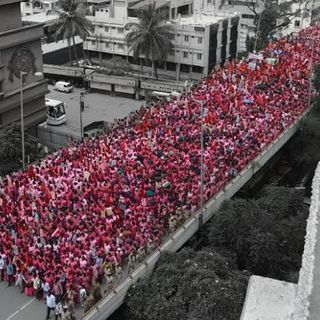A new UN report tracking government responses to the global pandemic has found that most countries have failed to offer adequate protection and support to women and girls to help them through the socio-economic crisis that is unravelling in the Covid19 pandemic.
Called theCovid19 Global Gender Response Tracker, the report assessed 206 countries and territories in terms of measures introduced to address violence against women, support unpaid care workers, and bolster women’s economic security. The results showed that while only 25 of the countries had introduced measures to address all three areas of concern, 42 countries had refrained from addressing these issues at all.
During the pandemic, UN Women has published a host of guidelines to help governments and stakeholders come with gender-sensitive responses to the pandemic. In May, the UN Women’s Response to Covid19laid out five focus areas for policymakers, including introduction of social protection and economic stimulus packages for women. In March, the organization had also published a ten-point checklist for countries, which included building shelters, and hotlines, for domestic violence. Yet, according to the present report, even after six months, only 135 out of the 206 countries have introduced measures to respond to gender-based violence.
Related on The Swaddle:
Working Mothers Get 1/3 of the Uninterrupted Paid Work Hours as Fathers Under Lockdown
India was not only among the 25 countries that had introduced measures to address all three areas of concern, but was also the only nation in central and southern Asia to do so. India, along with a handful of neighbors like Sri Lanka and Bangladesh, has focused on establishing, or bolstering, reporting mechanisms for intimate partner violence. The report also lauded the central and state governments’ socio-economic schemes like the Pradhan Mantri Jan Dhan Yojana, National Social Assistance Program, Pradhan Mantri Ujjwala Yojana Scheme, and Mahatma Gandhi National Rural Employment Guarantee Scheme, which have been strengthened to tackle the effects of the pandemic. Further, the government’s fiscal and economic measures to support the healthcare sector, where women’s share of employment is higher than men’s, was recognized.
Given the rise in cases of domestic violence and cybercrimes against women, in addition to the disproportionate impact of the economic crisis on female workers, policy interventions to tackle them are imperative. “Across every sphere, from health to the economy, security to social protection, the impacts of Covid19 are exacerbated for women and girls simply by virtue of their sex,” UN’s Policy Brief on the Impact of Covid19 on Women had stated in April. At this rate, decades of progress made towards gender equality is at the risk of being rolled back.
“The Covid19 crisis provides an opportunity for countries to transform existing economic models towards a renewed social contract that prioritises social justice and gender equality,” Achim Steiner, Administrator of the UNDP, told The Guardian.




